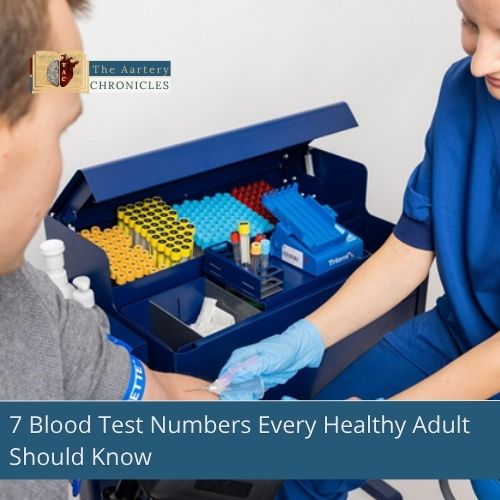

7 Blood Test Numbers Every Healthy Adult Should Know
Summary
Blood tests are one of the most effective ways to detect health issues early. However, we often focus only on sugar or cholesterol. This guide breaks down seven key lab markers you should monitor regularly. They are simple, affordable, and can guide your lifestyle choices well before symptoms start.
1. Haemoglobin & CBC: Is Your Body Carrying Enough Oxygen?
A Complete Blood Count (CBC) checks your red and white blood cells and platelets. Low haemoglobin or signs of anaemia can explain fatigue, headaches, or poor focus. Women and vegetarians are more prone to iron deficiency. This test also helps pick up infections or even early signs of blood-related illnesses.
Tip: Low haemoglobin? Check your iron intake, especially if you have heavy periods or follow a plant-based diet.
2. Fasting Blood Sugar + HbA1c: Is Your Blood Sugar Quietly Creeping Up?
Fasting blood sugar (FBS) shows your sugar level for that day. HbA1c gives your 3-month average. Together, they are powerful tools to catch diabetes or prediabetes early, even if you feel “normal.”
Tip: A normal FBS with a high HbA1c may mean your sugar spikes after meals or that stress is affecting your levels.
3. Liver Function Tests (LFT): Is Your Lifestyle Affecting Your Liver?
These include enzymes like SGPT, SGOT, and bilirubin. Mild elevations are common in those who drink alcohol or who take multiple medications.
Tip: Even without alcohol, high-fat diets or weight gain can silently affect your liver and lead to a condition called Fatty Liver, a condition which currently affects roughly 1 in 3 Indians.
4. Renal Function / Creatinine: Are Your Kidneys Filtering Well?
Creatinine is a waste product filtered by your kidneys. It can be slightly high if you are muscular, dehydrated, or take protein supplements. But if it stays high, it may signal early kidney trouble.
Tip: To be sure, an eGFR test is usually recommended if Creatinine is disordered, which gives a clearer picture of kidney function. Stay hydrated before testing, and monitor regularly if you have diabetes, high BP, or a family history of kidney issues.
5. Vitamin D & B12: The Most Common Silent Deficiencies
Low Vitamin D is linked with fatigue, bone pain, low mood, and immunity dips. B12 deficiency can cause tiredness, tingling, memory issues, or even anxiety.
Tip: Most people need vitamin D supplements. Sunlight helps with the absorption, hence is of extreme importance, however enough exposure is possible if you work indoors.
6. Lipid Profile: What Your Cholesterol Says About Your Health
Your HDL (“good” cholesterol), LDL (“bad”), and triglycerides matter more than just the total number. Imbalance increases heart disease risk, even in thin or active people.
Tip: Low HDL and high triglycerides may indicate a high-sugar or sedentary lifestyle, not just oily food.
7. hs-CRP: A Clue About Silent Inflammation
High-sensitivity C-reactive protein (hs-CRP) is a marker of low-grade inflammation. It is emerging as a risk factor for heart disease, even when your cholesterol is normal.
Tip: Elevated hs-CRP? Consider reducing sugar, processed food, and improving sleep and activity.
Takeaway
These seven numbers are more than just digits on a report. They tell you how your body is functioning today and where it may be heading. Track them yearly, talk to your doctor, and take small actions early. Prevention is easier than a cure.
- American Diabetes (2023). Understanding A1C: What it tells you about your blood sugar. https://www.diabetes.org/a1c
- American Heart (2023). What your cholesterol numbers mean. https://www.heart.org/en/health-topics/cholesterol/about-cholesterol
- Younossi, , et al. (2021). Prevalence of Non‑alcoholic Fatty Liver Disease in India: A Systematic Review and Meta‑analysis. Journal of Hepatology. https://pubmed.ncbi.nlm.nih.gov/35677499/
- Centers for Disease Control and (2023). Blood tests. U.S. Department of Health & Human Services. https://www.cdc.gov
- National Institutes of (2022). Vitamin and mineral supplement fact sheets. Office of Dietary Supplements. https://ods.od.nih.gov
- National Kidney (2024). Understanding kidney function tests. https://www.kidney.org









